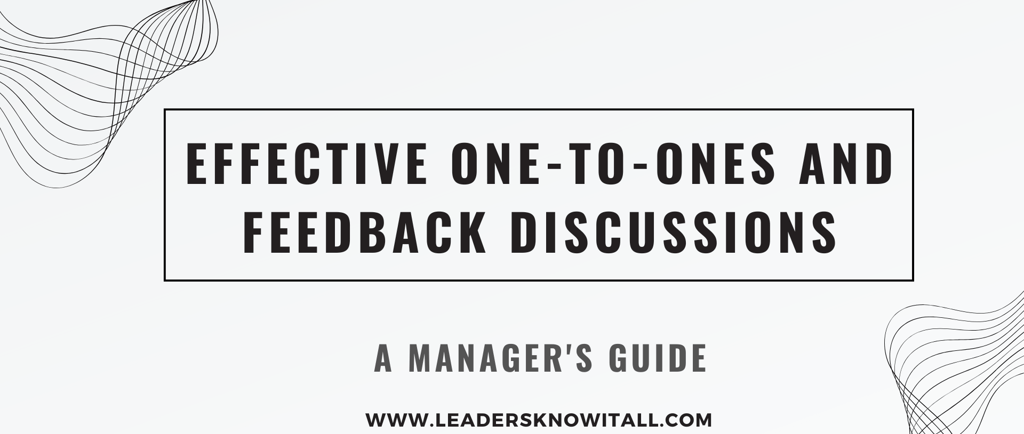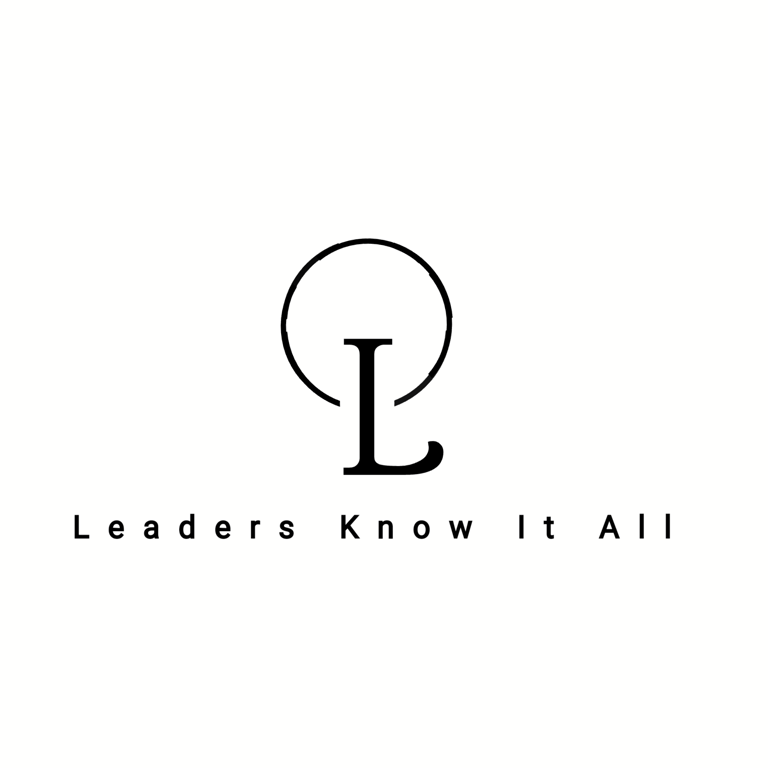Effective One-to-Ones and Feedback Calls: A Manager's Guide
Scheduled a 1:1 with your reportee? One-to-one meetings and feedback calls are important tools for managers to have open communication, build strong relationships, and drive employee development. These interactions provide an opportunity to understand employee concerns, recognize achievements, and align individual goals with organizational objectives. When conducted effectively, they can significantly enhance employee engagement, performance, and job satisfaction.
LEARN FROM LEADERSSERVANT LEADERSHIPLEADERSHIPEMPOWERING TEAMHOW TO BECOME A GOOD LEADEREFFECTIVE LEADERSHIPLEADERS DRIVE SUCCESSHEALTHY WORK ATMOSPHERELEADERSHIP TRAITSTEAM MOTIVATIONPEOPLE LEADERDIFFERENCE BETWEEN MANAGERS AND LEADERSTEAM DEVELOPMENTLEADERSHIP SKILLSSKILL DEVELOPMENTTEAM BUILDINGSERVANT LEADERPEOPLE LEADERSHIPMOTIVATIONASKING RIGHT QUESTIONSRESPONSIBILITIES OF A LEADERPEOPLE MANAGERMANAGEMENT SKILLSLEADERSHIP QUALITIESGOOD MANAGER VS BAD MANAGERGOOD MANAGEMENTFEEDBACKONE TO ONE
Leaders know it all
12/1/20243 min read


One-to-one meetings and feedback calls are important tools for managers to have open communication, build strong relationships, and drive employee development. These interactions provide an opportunity to understand employee concerns, recognize achievements, and align individual goals with organizational objectives. When conducted effectively, they can significantly enhance employee engagement, performance, and job satisfaction.
Key Elements of Effective One-to-Ones
Preparation:
A good preparation before the one-to-one is important for effective discussions.
Agenda Setting: Prepare an agenda in advance, covering key discussion points such as project updates, challenges, career development, and personal well-being.
Review Performance Data: Look at the employee’s recent performance metrics, feedback from peers, and any relevant notes from previous meetings.
Gather Feedback: Collect feedback from other team members or stakeholders to provide a clear view to the employee.
Creating a Comfortable Environment:
Confidentiality: Ensure the conversation is private and confidential to encourage openness.
Active Listening: Show genuine interest in the employee’s thoughts and feelings by maintaining eye contact, nodding, and providing verbal affirmations.
Structure of the Meeting:
Check-In: Start with a brief personal check-in to build rapport and ease into the conversation.
Discussion Points: Follow the agenda, allowing the employee to share their updates and concerns first.
Feedback: Provide constructive feedback, focusing on specific examples and behaviors rather than generalizations.
Actionable Goals: Set clear, actionable goals for the employee to work towards before the next meeting.
Support: Offer support and resources to help the employee achieve their goals and address any challenges.
Building Trust and Rapport:
Empathy: Show empathy and understanding towards the employee’s experiences and challenges.
Consistency: Hold regular one-to-ones to build a routine and demonstrate commitment to the employee’s development.
Follow-Up: Follow up on action items and previous discussions to show accountability and continuity.
Key Elements of Effective Feedback Calls
Timeliness:
Prompt Feedback: Provide feedback promptly after an event or performance to ensure relevance and impact. Also, make sure that you document that feedback somewhere so as to make it even more impactful, effective, and to be actioned. Keep this feedback as a base to watch improvement in the approach of the employee and notice any positive or negative changes.
Scheduled Calls: Schedule regular feedback calls to maintain an ongoing dialogue and address issues proactively.
Clarity and Specificity:
Be Specific: Focus on specific actions, behaviors, and outcomes rather than vague comments.
Examples: Use concrete examples to illustrate points and provide context for the feedback.
Balanced Approach:
Positive and Constructive Feedback: Balance positive feedback with constructive criticism to encourage improvement and maintain morale.
Focus on Growth: Emphasize opportunities for growth and development rather than just pointing out mistakes.
Collaborative Problem-Solving:
Two-Way Dialogue: Encourage the employee to share their perspective and collaborate on solutions.
Action Plans: Develop actionable plans together to address areas for improvement and set clear expectations.
Acknowledge Efforts: Recognize and appreciate the employee’s efforts and progress.
Motivate: Use feedback calls to motivate and inspire the employee to continue striving for excellence.
When I have one to ones with my direct reports, I focus on the following topics:
Job Stress
Workload
Worklife Balance
Relationships with the other CRAs and stakeholders/ Conflicts
Support and Resources Needed
Future Goals, Progress
Questions, Suggestions and Feedback for me
Feedback for them on their performance
Any specific training if required
I make it a point to discuss the following questions during the one on ones and design the call for 1 to 1.5 hours:
How do you manage your workload and prioritize tasks?
Do you often feel overwhelmed by the number of tasks you need to complete? If so, how do you handle it?
How do tight deadlines and multiple projects impact your stress levels?
How frequently do you travel for site visits, and how does this affect your work-life balance?
What are the most challenging aspects of travel related to your job?
How do you manage relationships with stakeholders?
Have you experienced conflicts or challenges in these relationships? If so, how did you resolve them?
How do you balance your professional responsibilities with your personal life?
Do you feel you have enough time to relax and unwind outside of work?
Have you experienced any physical health issues related to job stress (e.g., fatigue, headaches)?
How do you manage mental health challenges such as anxiety or burnout?
What strategies do you use to cope with stress in your job?
How satisfied are you with your current role and responsibilities?
What aspects of your job do you find most fulfilling, and which do you find least satisfying?
What motivates you to continue working in clinical research despite the stressors?
Do you feel you have adequate support and resources to perform your job effectively?
What types of support or resources would help you manage job stress better?
How has your job as a CRA impacted your overall quality of life?
What changes would you suggest to improve the work environment and reduce stress for CRAs?
How do you see yourself evolving in your career over the next few years?
What are your long-term career goals, and how does stress management fit into these goals?
Is there anything else you would like to share about your experience with job stress as a CRA?
Do you have any advice for new CRAs on how to manage stress effectively?
Regular and meaningful interactions demonstrate a commitment to employee development and well-being, ultimately leading to higher levels of engagement and job satisfaction.
Love and Light
LKIA
